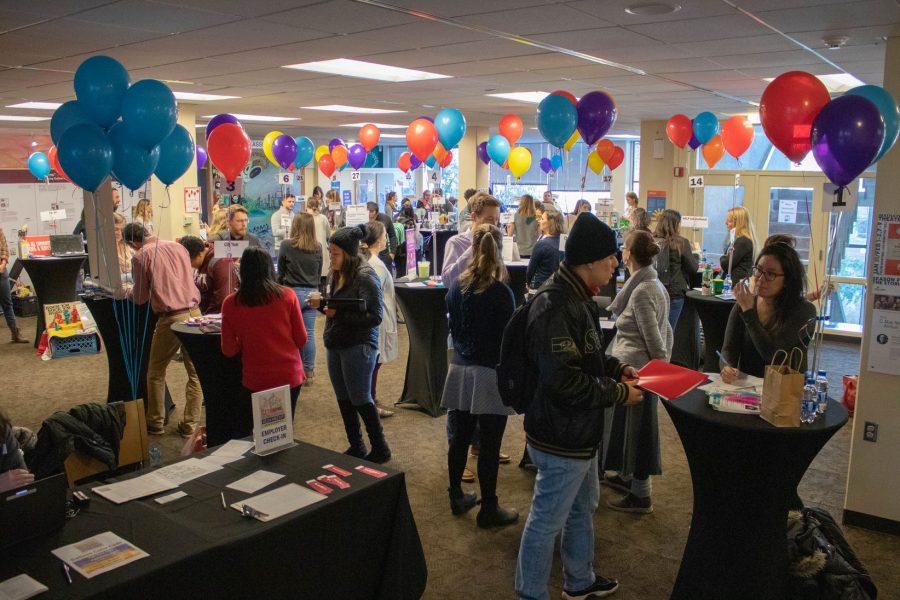Humanities students gain skills and have options.
Social justice and cultural studies major Joe Cagley described his transition from studying pre-med into the humanities realm by saying, “It was nice to have that security, and now sometimes … it seems crazy, paying all this money and my major is going to be social justice?”
As opposed to students in STEM studies, there is a certain level of occupational uncertainty that surrounds majors such as sociology, philosophy, psychology, classics and English.
However, students in the humanities have the opportunity to take a more holistic, interdisciplinary approach to their education — something that STEM majors don’t always have.
Although he has occasional doubts, Cagley ultimately believes in the value of his new major, explaining that humanities students spend more time “becoming better people … not just getting the grade but getting the experience.”
“I think business is as BS of a major as social justice is, because it doesn’t matter what you major in … it matters what type of person you are and the experience you have,” Cagley said.
This versatility of majors in the humanities sets them apart from the more science, technology or business-focused majors.
Although they do not have one obvious career path, students in the humanities study the various components of society and culture in depth, equipping them with knowledge that applies to many different vocational fields, and to everyday life.
“The skills that you learn can apply to so many different things and help in so many different fields, so it’s really overwhelming to not [be able to say] ‘Oh I’m an accounting major. I’m going to be an accountant,’” said Emma Seely, a sophomore sociology and cultural studies double major.
Despite this, Seely still sees their majors as having a different kind of value.
“For me it’s kind of freeing because I know that I’ll be set up to take the opportunities that arise.”
In true renaissance style, humanities students generally have the goal of graduating with a deep, well-rounded understanding of the world.
“The more you learn about how the world works you can figure out not just what you can do, what you can get a job in, but what you should be doing with your specific life and specific skills,” Seely concluded.
“You’re learning not just about the world but where you fit in it.”
Indeed, this experience, as well as the skills taught and required by the humanities, have practical applications in the workforce — as could be seen at the Peace, Justice, and Human Services Mega Meetup job fair that occupied Weter Hall last week.
On Wednesday, recruiters from 31 different humanitarian organizations represented the many work opportunities for humanities students. Most of these organizations were local to the Seattle area, although many had chapters world-wide.
The recruiters present acted as promising signs for humanities students as they shared their own experiences in the field.
Although it took her trying out many different roles, Nicole Harvey’s passion for social justice has led her to become the university relations manager of City Year, an organization associated with AmeriCorps.
“I feel like what the humanities teaches us to do is think critically and push back and challenge the ideas that the dominant society perpetuates,” Harvey said. Using her critical thinking skills, Harvey works toward social justice by disrupting exploitative systems through nonprofit work.
Harvey graduated with a major in sociocultural anthropology.
Out of the numerous professionals at the meetup last week, all of them had the same advice to students: find the one thing you are most passionate about and commit to making a change.
“Everything in the world is really chaotic right now and kind of terrible, but the cool thing about being in social justice and humanities field is that you’re right there in the middle of the change,” said Leda Zakarison, outreach coordinator for the Justice Leadership Program.
“There are so many problems in the world that have to be solved and there is a person that is perfect for each one of those.”















































































